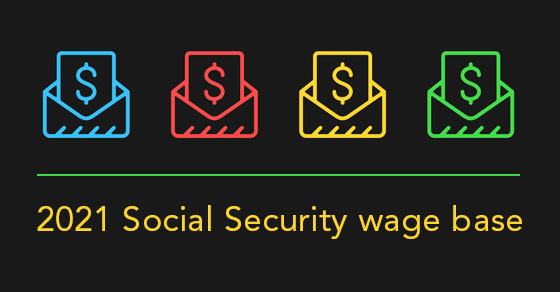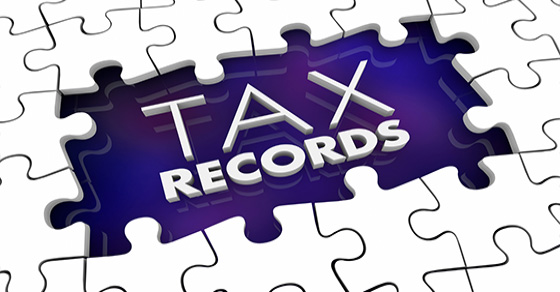Buying and selling mutual fund shares: Avoid these tax pitfalls
- ByPolk & Associates
- Oct, 26, 2020
- All News & Information
- Comments Off on Buying and selling mutual fund shares: Avoid these tax pitfalls
If you invest in mutual funds, there are potential pitfalls involved in buying and selling shares. For example, you may already have made taxable “sales” of part of your mutual fund without knowing it. One way this can happen is if your mutual fund allows you to write checks against your fund investment. If you write a check against your mutual fund account, you’ve made a partial sale of your interest in the fund (except for funds such as money market funds, for which share value remains constant). Thus, you may have taxable gain (or a deductible loss) when you write a check. And each such sale is a separate transaction that must be reported on your tax return. Contact us with questions.
The 2021 “Social Security wage base” is increasing
- ByPolk & Associates
- Oct, 26, 2020
- All News & Information
- Comments Off on The 2021 “Social Security wage base” is increasing
If your small business is planning for payroll next year, be aware that the “Social Security wage base” is increasing. The Social Security Administration recently announced that the maximum earnings subject to Social Security tax will increase from $137,700 in 2020 to $142,800 in 2021. Wages and self-employment income above this threshold aren’t subject to Social Security tax. For 2021, an employer must withhold: 6.2% Social Security tax on the first $142,800 of employee wages, plus 1.45% Medicare tax. In addition, there’s a 0.9% additional Medicare tax on all employee wages in excess of $200,000. Contact us with questions. We can keep you in compliance with payroll laws and regulations.
What tax records can you throw away?
- ByPolk & Associates
- Oct, 16, 2020
- All News & Information
- Comments Off on What tax records can you throw away?
Oct. 15 is the deadline for individual taxpayers who extended their 2019 tax returns. If you’re finally done filing last year’s return, you might wonder: Which tax records can you toss once you’re done? Now is a good time to go through old tax records and see what you can discard. A common rule of thumb is to keep tax records for at least six years from filing, after which the IRS generally no longer can audit your return or assess additional taxes, even if your income was understated. But hang on to certain records longer including the tax returns themselves, W-2 forms and records related to real estate, investments and retirement accounts.
Reviewing your disaster plan in a tumultuous year
- ByPolk & Associates
- Oct, 16, 2020
- All News & Information
- Comments Off on Reviewing your disaster plan in a tumultuous year
The sudden impact of the COVID-19 pandemic in March forced every business owner, ready or not, to execute his or her disaster response plan. How did yours do? Now’s a good time to review it while the experience is fresh in your mind. Identify all distinctive threats (including, now, a pandemic) related to your industry, size, location(s), and products or services. Look back at whether and how your business was able to communicate in the initial months of the crisis. Which methods were most and least effective? Is new technology needed? Commit to revisiting your plan at least annually as well as to keeping your staff fully aware of it. Contact us for assistance and further information.
Understanding the passive activity loss rules
- ByPolk & Associates
- Oct, 16, 2020
- All News & Information
- Comments Off on Understanding the passive activity loss rules
The passive activity loss rules affect business ventures you’re engaged in or might engage in. If the ventures are passive activities, the passive activity loss rules prevent you from deducting expenses that are generated by them in excess of their income. You can’t deduct the excess expenses (losses) against earned income or against other nonpassive income. Nonpassive income for this purpose includes interest, dividends, annuities, royalties, gains and losses from most property dispositions, and income from certain oil and gas property interests. There are different rules for rental activities. Contact us if you’d like to discuss how these rules apply to your business.
4 steps to improving your company’s sales
- ByPolk & Associates
- Oct, 09, 2020
- All News & Information
- Comments Off on 4 steps to improving your company’s sales
Sales staffs have been under unprecedented pressure this year. The COVID-19 pandemic triggered economic changes that made many buyers cut back on spending. With the economy slowly recovering, here are four steps your salespeople can follow to improve their odds of success: 1) Qualify prospects methodically so sales staffers focus most or all their time on those most likely to buy, 2) Ask the right questions, based on research, to identify a prospect’s specific needs, 3) Proactively identify and address objections during sales calls to eliminate unpleasant surprises at closing, and 4) Above all, present a solution that fixes a problem or helps achieve a goal. Contact us for more info.
There may be relief from tax liability for “innocent spouses”
- ByPolk & Associates
- Oct, 09, 2020
- All News & Information
- Comments Off on There may be relief from tax liability for “innocent spouses”
If you file a joint tax return with your spouse, you should be aware of your individual liability. And if you’re getting divorced, you should know that there may be relief available if the IRS comes after you for certain past-due taxes. When a married couple files jointly, each spouse is liable for the tax on their combined income. That means the IRS can come after either spouse to collect the entire tax, penalties and interest, not just the part that’s attributed to that spouse. In some cases, spouses are eligible for “innocent spouse relief.” Generally, they were unaware of a tax understatement that was attributable to the other spouse. Contact us if you want to try and obtain relief.
The easiest way to survive an IRS audit is to get ready in advance
- ByPolk & Associates
- Oct, 09, 2020
- All News & Information
- Comments Off on The easiest way to survive an IRS audit is to get ready in advance
IRS audit rates are historically low, according to the latest data, but that’s little consolation if your return is selected. But with proper preparation and planning, you should fare well. But it helps to know what might catch the attention of the IRS. For example, some audit “red flags” are unusually high deductions, major inconsistencies between previous years’ tax returns and the current one, profit margins and expenses markedly different from those of similar businesses. The IRS normally has three years within which to conduct an audit. If the IRS selects you for an audit, we can help you understand the issues, gather the needed documents and respond to the inquiries effectively.
Reinforce protection of your company’s mobile devices
- ByPolk & Associates
- Oct, 09, 2020
- All News & Information
- Comments Off on Reinforce protection of your company’s mobile devices
Mobile devices have become the constant companions of today’s employees, a relationship only further cemented by the COVID-19 pandemic. But convenience brings risk. In the current economy, thieves may be trying harder to snatch technological assets. And a stolen or hacked device means hackers could gain possession of sensitive, confidential data about your company, customers and employees. To better protect your mobile tech, consider standardizing product types and operating systems. Also, enforce strict policies that include “power-on” passwords and regular password changes. Set data storage limits, limit personal use and keep security software updated as well. Contact us for more info.
Why it’s important to plan for income taxes as part of your estate plan
- ByPolk & Associates
- Oct, 09, 2020
- All News & Information
- Comments Off on Why it’s important to plan for income taxes as part of your estate plan
The current federal estate tax exemption ($11.58 million in 2020) means that many people aren’t concerned with estate tax. But they should still plan to save income taxes. For example, be careful making lifetime transfers of appreciated assets. It’s true that the assets and future appreciation generated by them are removed from your estate. But the gift carries a potential income tax cost because the recipient receives your basis upon transfer. He or she could face capital gains tax on the sale of the gifted property in the future. If the appreciated property is held until death, under current law, the heir will get a “step-up” in basis that will reduce or wipe out the capital gains tax.










